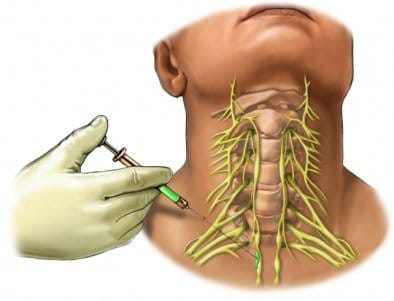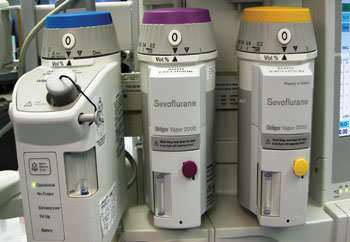With residency applications opening in the coming months, it’s about time I stopped bouncing between career choices and settle on one. I’ve finally decided on anesthesiology.
THE THOUGHT
Anesthesiology was always in the back as I contemplated surgical and medical specialties. It’s a good blend of both… sort of like being the internist in the operating room. My experiences in med school confirmed that I am a better fit for a procedure-based career like anesthesia for several reasons (listed below).
THE PEOPLE
I consider myself to be incredibly laid back with very little appreciation for drama; I surround myself with people who are happy so, in turn, I can avoid the anger and bitterness which often plagues *sleep-deprived* students/residents. The anesthesia residents and attendings I’ve worked with were nothing but helpful in teaching me the social and procedural aspects of their job. Rather than asking “why didn’t you finish [some task]?”, they preferred the “how can we help you finish?” approach. This was consistent between residents and spoke volumes about the types of people in the field (or at least those I encountered on the wards). They’re happy with their career choice, and this translates over to the camaraderie I saw between colleagues.
THE PROCEDURES

During a routine morning, residents I worked with would preop a patient, partake in a short O.R. case, throw in a central line and arterial line, go back to the preop unit to place a peripheral nerve block or epidural, run to the other end of the hospital to establish an emergent airway, and come back to the operating room for another case… all before lunch. Having short procedures throughout the day makes it interesting and certainly passes the time. Even in the longer cases, once the patient has been induced and the surgeons are rolling, there’s a lot of work that can still be done in terms of documentation, learning, and teaching. Furthermore, in a trauma setting where the “ABC mantra” (airway-breathing-circulation) is king, well… who better to establish an airway, ensure adequate breathing, and assess circulation status than someone who routinely manages that in operative cases?
THE SCIENCE
It’s rather mundane to say “I really like physiology and pharmacology”, but what does that actually mean? For me, it’s the beat-to-beat monitoring. It’s bolusing ephedrine and seeing the patient’s HR and BP rise within seconds. It’s understanding how the effects of drugs are altered by a patient’s comorbidities. It’s constantly assessing the worst-case scenario and having plans in place “just in case.” Not only is there a significant amount of basic science in clinical anesthesia, but it’s the breadth and application I find appealing.
THE SOCIAL ASPECT

Before a procedure when patients are probably the most nervous they’ve ever been, an anesthesiologist has to quickly build rapport to effectively gather history and answer any questions while, most importantly, easing the patient’s anxiety. I’ve been told I have a calming demeanor, and people feel better when I explain their disease state or upcoming surgery. In turn, I enjoy seeing how taking two extra minutes to offer that reassurance can make an unmeasurable difference.
Teaching is also a very important consideration for me. I love providing tips to underclassmen and pre-medical students. I thoroughly enjoy my time teaching small procedures (drawing blood and suturing) and advanced concepts which took me forever to grasp. It’s a hobby I wish to continue nurturing by one day having the opportunity to educate junior residents and to mentor medical students in an academic setting.
So now that I’ve written a *very abridged* list of reasons for anesthesiology, it’s time to start finalizing my personal statement, CV, list of programs I want to apply to, and… well… prepping for travel expenses. Here’s hoping for a happy interview trail! 😀






Hi Rishi, Just wanted to say congratulations on your decision to pursue a career in Anesthesiology. I am sure you will do amazing things in your chosen career. Just one question. I started following you and your blog back when you had just been accepted in BCM. And it seems I remember your thoughts back then were to go into Neurosurgery. Is that correct? And if so, what made you change your mind?
Also, having recently started volunteering with Healthcare for the Homeless, I have worked with a couple of CRNP’s and was actually considering taking the ‘fast track.’ Even had someone suggest that the role of the physician is considerably being downgraded in this day and age and going the CRNP way would be the ‘smart thing to do.’ However after reading your comments under ‘The Concern’ part of your post, I realize you are right, they are Nurses after all and I know that just would not fulfill what I feel is my true calling-to be a physician. Just wanted to share that and thank you for the little bit of inspiration.
Yay! I’m really happy you’ve made your choice, and even more happy that you are happy with it. (So many happys…) I’m sure you’ll be a great doctor and will bring hope and care to your many future patients. Way to go, soon-to-be Dr. Kumar!
Thanks for the kind words, Lucy! The more I think about it, the more content I am with this decision. 🙂
I LOVE KIDS I’m so glad you’re going to work with them 😀
I am a fan of this decision!!!!! You really do have a calming demeanor that I would have loved as a kid prior to the OR. Plus. WHAT COULD BE BETTER than getting to carry the kids into the OR rather than wheel them in a lame bed?! You get to do that!!!
Thanks so much, Carmelle!! Hahaha, you’re absolutely right!! But the older kids get to pedal those racecars to the O.R., so I better watch out. 😀